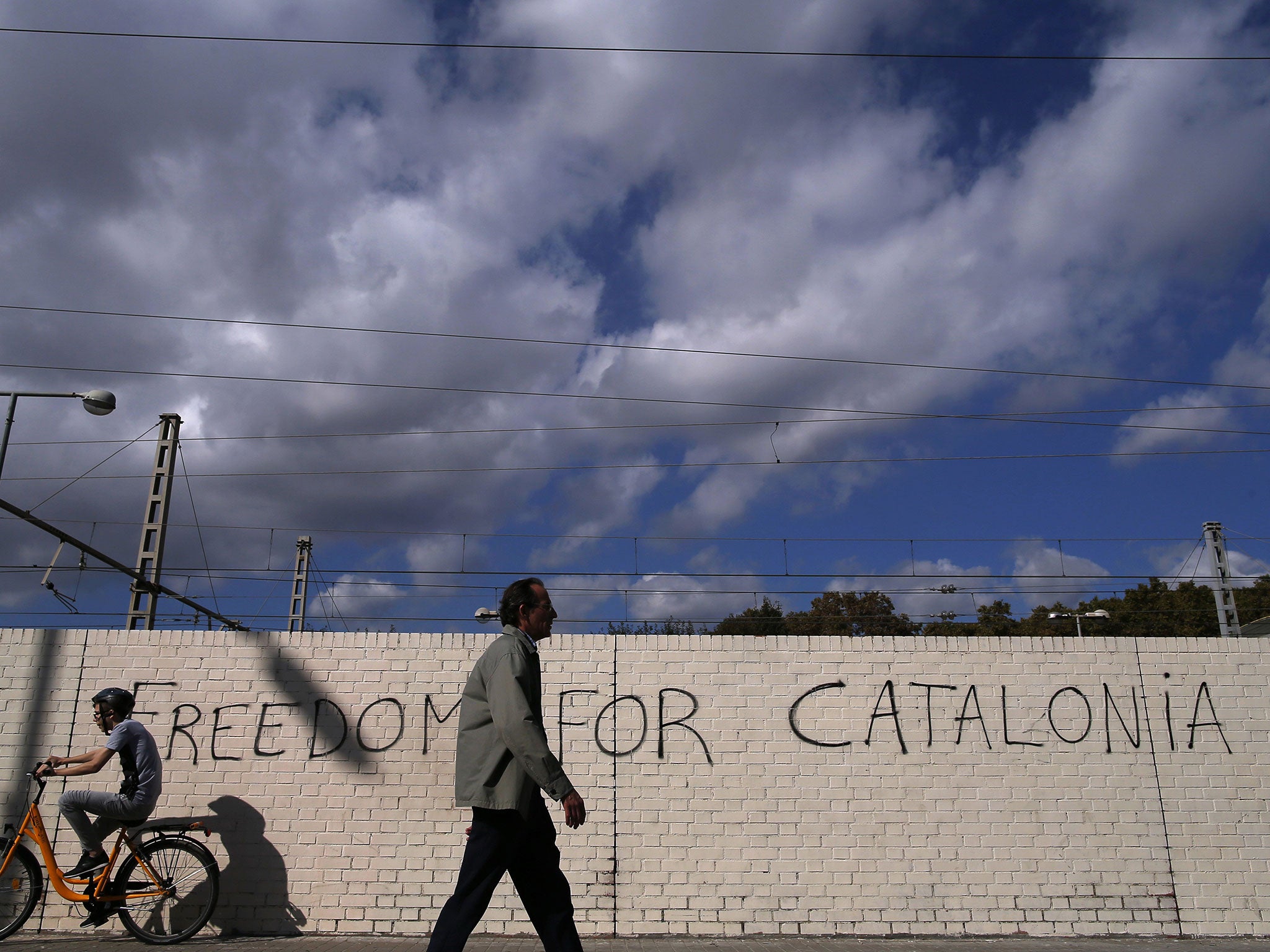Catalonia says it will defy orders from Spanish government when it imposes direct rule
Leaders of the secessionist campaign said the referendum gave them a mandate to claim independence

Catalonia will defy attempts by Madrid to enforce direct rule on the region in a dispute that is raising fears of unrest among Spain's European allies.
The Spanish government has invoked special constitutional powers to fire the regional government and force elections to counter an independence drive. A vote in the national Senate to implement direct rule is due on Friday.
But leaders of the secessionist campaign said a referendum on 1 October, in which 43 per cent of the electorate voted, gave them a mandate to claim independence from the rest of Spain.
"It's not that we will refuse [orders]. It is not a personal decision. It is a seven million-person decision," Catalonia's foreign affairs chief Raul Romeva told BBC News.
Mr Romeva was asked whether he believed all institutions, including the police, would follow orders from Catalan institutions rather than obey the Spanish government.
"And from that perspective, I have no doubt that all civil servants in Catalonia will keep following the instructions provided by the elected and legitimate institutions that we have right now in place [in Catalonia]," he said.
Catalan authorities said about 90 per cent of those who took part in the referendum voted for independence. But only 43 per cent of the electorate and 1 in 3 Catalans participated, with most opponents of secession staying at home.
The crisis over the wealthy Catalan region has raised fears among European countries of a spillover to other parts of the continent.
Two wealthy regions of northern Italy voted overwhelmingly on Sunday for greater autonomy, although those referendums were held in line with the constitution and were not binding on Rome. Separatists are active in Belgium's Flanders region, and France's Corsica has long been home to a secessionist movement.
At a European Union summit last week, leaders sought to minimise Spain's crisis with Catalonia and described the secession bid as a domestic issue.
Civil disobedience was also backed by the far-left party CUP, a key support for Catalonia's pro-independence minority government in the regional parliament, which has called Madrid's actions an aggression against all Catalans.
"An aggression which will be met with massive civil disobedience," the CUP said in a statement.
Several hundred Catalan municipalities said they were against direct rule from Madrid and asked the Catalan parliament to vote on a motion rejecting it.
Some teachers and firemen also said they would not recognise Spain's authority.
"We will not recognise as valid interlocutors those people who are not representatives of popular legitimacy," the teachers' union USTEC said in a statement.
"We will be where we should be in this moment: with the Catalan institutions and with democracy as it fights for its survival."
Spain has said it would fire top Catalan officials if they did not comply with orders but it has remained vague on how it plans to implement direct rule if lower ranking civil servants decide not to follow instructions.
Foreign minister Alfonso Dastis said the central government was not planning any arrests.
Around 4,000 national police who had been shipped in for the referendum have remained in Catalonia. This comes on top of 5,000 state police already based in the region.
They usually act as a back-up to Catalonia's own 17,000-strong police force, the Mossos d'Esquadra, although they have also been seen reinforcing security at some official buildings in Catalonia's capital Barcelona.
Catalan president Carles Puigdemont has called the Catalan parliament to meet this week to agree on a response to Madrid, something many observers said could pave the way for a formal declaration of independence.
The assembly will meet on Thursday to agree a response to direct rule.
Mr Puigdemont was also considering appearing before the Spanish Senate to explain his position.
The Cercle d'Economia, an influential Catalan business association, called on Mr Puigdemont to resolve the crisis by calling a snap election before direct rule becomes effective.
Catalonia risked heading into prolonged and uncontrolled insecurity and civil unrest, it said.
"Its consequences are unpredictable but, in any case, dramatic in terms of self-government, coexistence, economic growth and employment," it said in a statement.
More than 1,300 companies have decided to transfer their legal headquarters out of Catalonia due to the current uncertainty, according to the national companies registry.
However, Catalan government spokesman Jordi Turull said calling a snap election was not an option.
An opinion poll published by El Periodico on Sunday showed a snap election would probably have results similar to the last ballot, in 2015, when a coalition of pro-independence parties formed a minority government.
Spain's Deputy Prime Minister Soraya Saenz de Santamaria said Mr Puigdemont would be out of a job once direct rule was enforced and Madrid would install its own representative. The Spanish government has said it would call a regional election within six months.
"They are president of the regional government and senior figures in that government because of the constitution," she said during a radio interview.
"They are not entrusted with that role by any divine authority," she said.
Reuters
Join our commenting forum
Join thought-provoking conversations, follow other Independent readers and see their replies
Comments
Bookmark popover
Removed from bookmarks